Water Companies can face a wide array of events: creation, expansion, profit, losses, and sometimes even death. Yet one specific change is maybe the most transformative: getting sold and transferred to a new owner. If that’s well documented for large water groups, it’s a much different story for smaller water companies: let’s explore it!
with 🎙️ Karl Michael Millauer, Founder of KMM Consulting and a former C-Level executive in some emblematic water groups like BWT, Christ Water Technology, Aquatech International, and Aquarion AG.
💧 KMM Consulting helps clients around the globe leverage opportunities in the world of water through mergers & acquisitions, finance & funding, business development, and strategic support.
Infographic: Water Companies for Sales
1626164_Linkedin-Infographic-S8E19_042823What we covered:
▫️ How unlike McKinsey, Roland Berger, or KPMG, KMM Consulting works with small Water Companies and helps them get sold, further distributed or raising money
👴 How the most common case is to put a water company for sales to solve a succession challenge
🔨 How some other water businesses have reached a glass ceiling for their growth and how a M&A move is the way to break it
👐 How healthy water companies can be profitable for 45 years, active in a very good niche and scalable, and still not find any interested investor
🤑 How founders often overestimate the value of their Water Company, why they do so, and what’s a good rule of thumb to determine the right valuation
⏰ How long a typical due diligence process lasts and what key milestones have to be crossed
🤝 How marketing is key in selling a water company and how that often boils down to the founder’s ability to convey his message and value proposition
👔 How KMM Consulting packages its relationship to small water businesses and how that’s a different approach to what most market players do
👨🏫 How ESG and sustainability investors may need to get educated to the specificities of the water sector when they first step in
📈 How some water companies are perfectly healthy and profitable and simply don’t want to grow, why, and why that’s absolutely fine!
👋 How when acquiring a small water company, new owners may get nervous if the founder leaves too quickly and which kind of mechanisms such as earn-outs work the best to please everyone
🍴 How the freshly created Aquarion AG acquired the established Hager und Elsässer behemoth and what you can learn from it
💰 Drivers that amend a company’s valuation, healthy growth vs burning money. the biggest hurdles in a water company sales process, how it’s a people’s business, the importance of risk management, pairing technical and commercial skills, focusing on the smaller end of the water sector’s pyramid… and much more!
🔥 … and of course, we concluded with the 𝙧𝙖𝙥𝙞𝙙 𝙛𝙞𝙧𝙚 𝙦𝙪𝙚𝙨𝙩𝙞𝙤𝙣𝙨 🔥
Resources:
🔗 Check KMM Consulting’s Website
🔗 Send your warmest regards to Karl Michael on LinkedIn

is on Linkedin ➡️
Table of contents
- Infographic: Water Companies for Sales
- What we covered:
- Resources:
- Full Transcript:
- Introducing: Karl Michael Millauer
- The architect of Global Water Intelligence’s Opportunity Exchange Platform
- Working with Smaller Water Companies
- Selling a Water Company to Solve a Succession challenge
- The Valuation expectations of Small Water Companies can be a showstopper
- What’s the influence of the consolidation frenzy on Water Companies’ valuation?
- Is Bootstrapped Entrepreneurship undervalued by Water Investors?
- KMM Consulting’s business model to work on Small Water Companies’ M&A
- How does a Buy-Side Mandate project look like?
- How “educated” are new Water Investors?
- Will Water Companies’ Consolidation slow down?
- The story of Hager und Elsässer’s Acquisition by Aquarion
- Gobbling up a Large EPC as a shortly created Water Business
- Multiplying the Sales of a Water Company by 5
- What’s next for KMM Consulting?
- Rapid fire questions:
Full Transcript:
These are computer-generated, so expect some typos 🙂
Antoine Walter: Hi, Karl Michael, welcome to the show!
Karl Michael Millauer: Hello. Good morning.
Introducing: Karl Michael Millauer
Antoine Walter: I’m very excited to have you. On that microphone because you have a profile, which is quite rare in this industry, and there’s so many topics on my wishlist to discuss with you today that it might be a packed discussion, but have traditions on this microphone. And it starts with my opening question, which is what can you tell me about the place you’re at, which is Zurich, which I would ignore by now.
Karl Michael Millauer: I’m living here since now. More than 20 years in Switzerland. But I’m traveling a lot all over the world I see me as a very cosmopolitan then as an Austrian based in Switzerland. But you need something like you call home. So at the moment my home is Zürich.
Antoine Walter: you mentioned a bit this traveler experience and the fact that you’re in a cosmopolitan place. You’ve lived three lives. If I’m right in this industry, you’ve been First outside of the water sector, and you’ve had a career in finance and banking, then you’ve been inside the water sector and you’ve had several CSU positions in this industry, and we go in more depth of that later.
But lately, you founded KMM Consulting I was wondering what guided you across these three lives? Is there like a red threat?
After a first life in Finance and Banking, 20 years in the Water Sector’s C-Suite
Karl Michael Millauer: As you say correctly I started law and business administration, so I’m a commercial guy, not a technical guy. I was always in financing. I’ve done many IPOs in Austria before I joined, and in 2001 BWT Group. And I had a reputation of making successful IPOs and BWT and asked me to join to make out of the engineering group, a nice business unit organization and make the company fit fine.
IPO. That was my mission when I came. So I moved to Switzerland because the biggest company. in this BWT empire was Christ Water, which was listed on the Zürich stock market. that was my mission. But then when I started in water business, I got, let’s say, under GIMs infected from water because I came from luxury fashion, luxury industry.
And I was Of course very fascinated about the water and how important it this is for human life and for the planet. So I feel more satisfaction in dealing with water and water issues.
Karl Michael Millauer is the Founder of KMM Consulting
Antoine Walter: And what leads you then to found KMM consulting?
Karl Michael Millauer: Yeah, I think that is more or less when you have an active career on sea levels. And I have been in many companies, few companies in sea level functions. I think at the end of your career you have gain so much experience. You have a tremendous network. It makes more fun to be consultant than to run operatively a group.
And yeah, it makes more fun and you can really leverage your network and you can attend to conferences, ratios. You can meet people, which you can’t do when you are running a water company. What a group. You’re too much engaged with operations.
The architect of Global Water Intelligence’s Opportunity Exchange Platform
Antoine Walter: You, you mentioned your network and you mentioned how you can interact. So I think that’s what leads us to the herd of that conversation today, because I followed this inception by GWI of their opportunity platform, opportunity exchange platform. And I thought that was interesting.
I had Christopher Gasson that microphone a while ago.
And so I looked out, out of curiosity, what was there on the platform and a lot of very interesting companies and offers and perspectives were proposed there. And at the time I looked, there were 35 opportunities on that platform.
And I started clicking those opportunities one by one. And your name was all over the place in every single opportunity you were the contact person, you were the person to introduce it. And it was like 35 companies and not like uninteresting ones. The total opposite, like really cool stuff.
And I’m wondering, how do you build a portfolio of 35 companies which work with you, and why did you list them on that opportunity platform?
35 Water Companies in Portfolio
Karl Michael Millauer: First of all, I have always a close relation to GWI since long time since I started in water business. I was the initiator of this idea because I want to reach a very big public big auditorium and gwi certainly the best to do that. So we were working on such a platform together with with Lou and other.
And secondly, yes, why? Yeah. I’m not a McKinsey or Roland Berger or KPMG. I’m KMM Consulting. So I focus more on the niche markets where the big guys are not looking at, this is a smaller companies. My size is between startup. Companies with zero revenues up to 30 million Euro revenues.
Most of my companies are between five and 15 million Euro revenues, and this is a category which they do not pay retainers to the big guys. They need to be made fit for new owner so this is when I have sales side or capital raise mandates, and I saw there’s a big demand in the market from a lot of small companies.
And startup companies to get capital or to sell or to get licenses. While when I have search mandates, what I also have, these are always big groups. These are big groups looking in the market and asking me to, I know what they’re looking for us, or if it’s matches, then I bring them to this targets.
Two market approaches: Buy and Sell Mandates
Antoine Walter: There’s a lot to unpack. So let’s start by the end search mandate, I guess, is when you have a big group, which is looking for a target, and then you are actively looking on the market, what would be the right target to understand that one right?
Karl Michael Millauer: Yes, but there’s not one I did many mandates. You get an a mandate from a huge water group or from a bigger one, which gave me a clear mandate, a profile, and I screen the market. Worldwide, or Europe or Asia, and then I bring them a long list and out of that we take a short list and then I approach them and see if they’re actionable or not.
This is the way, but that the overwhelming part of my activities are certainly sales side or capital race mandates.
Teaming up with GWI to fill a gap for small-sized Water Companies
Antoine Walter: you mentioned how you worked closely with GWI and Louis de la Pasture, right? As the person, you were working with. So you were the person who came to them and said, look, there’s an opportunity. I think you should be looking into that, and they created it on your initiative.
Karl Michael Millauer: Yes. I talk first with Christopher Gasson, then with Sebastian Lennox, and then I was working on the realization and the implementation with Louis.
Working with Smaller Water Companies
Antoine Walter: what’s your relationship to these companies, which you’re helping this niche ones, which are looking for investment or partnership, which is not covered by the big guys. How do you interact with them?
Karl Michael Millauer: Yeah. First of all, I know many of them from my active career as CEO, So I know mon many companies I visit them, approach them. Certainly most companies I have in Europe, but I have also in Middle East and in Southeast Asia. A couple of clients. And of course few in the United States. So this is my portfolio.
So I know them. And in most cases there’s a succession problem that the founders have no kids or nobody who success, therefore they want to sell. But this is the major part of the sales site mandates, which I have. But sometimes I have also companies who have reached a limit. They need a strategic partner to continue to grow.
And then this is also a driver of such a sales side, or let’s say not real sales side. Very often it’s only that somebody invests money in the company, get maturity and then they can continue the business, but with much more power
Small gems… on which larger water companies often pass!
Antoine Walter: I don’t know how much that is confidential. So you’ll tell me, but can we name one or two examples and look at the path How an investment at that stage would change their path, and what’s the kind of investment or partnership which would really make a difference.
Karl Michael Millauer: I, I cannot disclose this, but it’s, anyway as I told you, the small caps size companies in this range, they were profit power. I have not one loss making company. There are very, some very good, but it’s not easy to find for small companies with six or 8 million Euro sales because that’s too small for most of the companies I’m contacting.
So it’s more interesting for smaller companies want to buy a smaller one to get. Bigger. That’s the main reason. But it must fit. I have some deals running and the long I make it, the more I’m known in the market. And certainly GWI helps here a lot as well. But I’m also attending many conferences and also trade shows and so on.
Selling a Water Company to Solve a Succession challenge
Antoine Walter: So one of these use cases you, you mentioned is there is succession story where the owner. Wants to retire and there is no succession plans. So one of the ways to evolve from that might be to consolidate the company into another one. How often does that case happen in the water sector?
Karl Michael Millauer: Yeah, it’s a smaller companies. I would say two third of my sales site mandates are such case. The owner, mostly the founder have no successor and wants to sell the company that. And once you are these really companies which look for a strategic buyer or a finance investor to grow the company because they’ve reached the limits,
Antoine Walter: You mentioned how this, these big groups have a hard time investing in small size companies, and I live that firsthand in my duties at GF Piping Systems. We’re looking for middle size water companies, but this. Middle-size water companies don’t really exist on the market anymore, and these small-size water companies have a lot of wealth and very interesting access to market technologies to offer.
So do you think you need to educate that market so that even the big groups are looking into these smaller gems?
Small water companies even if profitable can be a hard pass for larger groups
Karl Michael Millauer: Yes, of course. I would say because okay, if it’s a normal me too engineering company, but they make profit, I have companies which make since 45 years profit, not one year loss making. I have companies which have found very good niches which are scalable. And of course I have many Companies here, which is say minimum size is 20 million.
Otherwise we don’t look at a smaller company. I think of course, that may be a mistake On the other side, understand the huge groups because they have to spend a lot of resources for small companies. So I think maybe they should have a more differentiating look and see if it’s scalable or not, and then they decide if to look at that.
But I know with many companies, I cannot approach the bigger company. Because I have a minimum, sales target, what they want to have. Otherwise, they don’t look at this opportunity.
M&A policies can be restrictive in large groups
Antoine Walter: So do you try to convince them and do you actively go into these groups and say, I understand why you’re not interested, but I think you’re making a mistake.
Karl Michael Millauer: No, I would say, It’s very clear. They look, when I say, have a look, they look and then they say, yes, come back to me. When they are bigger. When they get bigger and that is not so much time. I do not have, so I’m, I’m trying then to find mid-size companies which are more interested or sometimes you find also water funds who are investing in that if they think it’s interesting, to give them a growth possibility.
The Valuation expectations of Small Water Companies can be a showstopper
Challenging is always in this, that the founders are always overestimating the value of its company. So this takes sometimes One, two years until they realize the real value of the company. And then they came down. If you as a consultant tell them this valuation is too high then they will look for another consultant.
They want to hear what they believe. And therefore I also learned my lessons. But of course you can argue with multiples, but when they came with multiples for Veolia mobile water with 22 times EBITDA, I them forget it, you are four or 5 million Euro company. This is a 60 million. There’s a huge difference in size.
And so I have to explain a lot. And very often the companies have not a good accounting. We have to also make them fit. They have also battery, not audited numbers, I told you have to pay that they don’t want to spend the money for audit. So it’s not so easy as it looks like to make them fit for an acquisition for other parties.
Rule of Thumb: the right valuation for small water companies is a 5-6 times the EBIT multiple
Antoine Walter: You mentioned the example of Veolia mobile solutions, which was sold to Nijhuis or Saur with this 22 times the EBITDA multiple, do you have like a rule of thumb for a. Smaller size company, let’s say with sales under 10 million euros, which would be a reasonable target in terms of
Karl Michael Millauer: of yes, I would say if they all depends here on the recurring revenues, do they have a higher percentage of their revenues in recurring revenues? It’s a value driver, no doubt. But without some A bigger part of sales, I would say five times, six times. EBIT is the maximum you can get.
If you have more recurring revenues, you may have able to go a bit higher. When they have some special IP or a technology, then it’s a different story. And then the question, what the strategic buyer sees as value in this technology. But very often this is then attached to an earn out. They don’t.
Like to pay upfront something is too risky. But there’s an earnout solution then for such cases. but the market is coming down because the interest rate have now increased, so now I see the market is calming down. It was a bit overheated the last two years. I think the multiples are dropping now, at least what I have seen.
What’s the influence of the consolidation frenzy on Water Companies’ valuation?
Antoine Walter: There are many elements of that heat when you have the number one in the world acquiring the number two in the world, and then some months later, Xylem acquiring Evoqua. It gives this sense of consolidation is happening, we need to move. And maybe that drives the price up well. You mentioned this earn out, which is one of the processes.
I guess how one of these moves is a process. How long would you say it takes between the moment where they say, look, I need to look for an acquirer? Then there is this time where you have to educate them that maybe the valuation has to be put at the right scale. Then you find someone which might be the right partner.
, you have the marriage which happens, and then you have this earn out or transition phase. All that process, how long does it last?
How long does it take to take over a small water company?
Karl Michael Millauer: That’s a very difficult question because it’s case by case different. I have a case now where we made a good process, we selected the best offer, they started due diligence, everything went well. But one of the shareholders want to stay in the company. And then after share purchase agreement was okay, then they came to the shareholders agreement.
And in the minority rights, they are now disputing since nine months, they have not found a compromise on the minority rights. So this is something you didn’t expect, mean all other hurdles have been taken. So it’s very difficult to say. But the due diligence, normally in smaller companies, you should be finished in six to eight weeks or depends how good is the documentation.
If it’s very good, you can do it in four weeks. And then I think the purchase agreement is then, which takes a bit more time, especially when you have lawyers, which one to make money out of that. So they tried then to put everything in. So it’s very important for the sale buyer that they control their lawyers.
Rule of Thumb: 3 months, sometimes 4 weeks
then it can be done quite quickly. So I think the biggest hurdle is to find an LOI and sign a term sheet. Then it should be normally in three months, I would say, finished everything If everything works well. Yeah. Yeah. But there are small companies, they have almost no subsidiaries.
You have to look at the backlog. You have audited numbers. If not, then you have to make a more intensified financial due diligence. And they have to anyway, give a balance sheet guarantee that no tax reps and warrants. And very often what I’ve seen, they keep 10 or 20% of the purchasing price on an escrow account for one year.
This is also quite usual so that they’re protected here somehow. They buy, especially when they sail leaves when the seller sail and might walk away.
Is Bootstrapped Entrepreneurship undervalued by Water Investors?
Antoine Walter: You mentioned how some of these companies exist for 45 years and have been profitable since almost day one and profitable all the way long, and how still they might be difficult to get attractive for middle to big size groups because they’re not making a lot of sales yet. That sounds like, you know, the bootstrapped approach where you grow.
In a traditionally maybe conservative but very stable and sustainable fashion. And on the other end of the spectrum, you have water companies which to this date have never been profitable, which are listed, which are worth half a billion. If I take the example of NX Filtration, for instance.
It sounds like those companies which are going for hyper growth are more attractive to investors and big groups.
Do you believe they’re making a mistake here or do you understand the logic?
You need to market your water company right to be able to sell it
Karl Michael Millauer: Yeah, I sent the logic. It, you know, in also in our business, marketing is very important. I have an example of a membrane company which have fantastic membranes. I ask many membrane expert and they said, This membrane, if this is true, what they are stating, this is really a differentiating product.
But the owner cannot sell his company. He’s too technically driven. He’s with one question. He goes in so nitty gritty details that all investors fall asleep. And down the other side you have a company where you have a good management. Passionate lot of energy. We want to conquer the world.
, and then they get very easy, their money, of course, they have to prove then, but I must say it’s very important that you have a committed, passionate management, which can sell their story very well. This is extremely important. Yes. If it’s mid, long term, if they oversell we will also see such cases.
Technical founders may not be the best sales people
Antoine Walter: if I get you right, and I’ve seen these cases quite a lot, so I, I see where you’re coming from. The founder and the head of the company is usually a guy who invented the technology, so he’s a, what a big group would call a chief technical officer. But here, He’s the boss because it’s his company and maybe sales is not his first asset and his first key talent.
So he has a good time explaining the technology, but a bit more of a difficult time to convey the vision as to why. That is really great.
Karl Michael Millauer: great. Correct? I have many such cases. Just tomorrow I visit one of these companies. Founded, , never Take one loan, very profitable. Find a very good niche, but he cannot sell his company. It’s, It’s impossible. He doesn’t speak English at all. This is the next problem.
Helping technical founders to market their water business
Antoine Walter: And so in those cases, can you help them out by being this person which has this sales acumen and this business? This acumen, which can translate their technical word into something which is attractive to investors.
Karl Michael Millauer: Yes, of course I try to help them as good as I can. But , my business model is totally different from other. Consultants. I do not go for retainers, which that it’s my way how I can get to this 35 sale site mandates because they do not want to pay retainers. The small companies, they don’t know you, they don’t want to spend money for and don’t get value.
KMM Consulting’s business model to work on Small Water Companies’ M&A
This is what they see the risk. And I have a very often a non-exclusive. In some cases I have exclusivity, but I don’t need any only exclusivity for the investors I nominate, then I’m protected. And then I work on a success fee basis. So I can certainly make a visa, I make a pitch deck, I help them. But I cannot spend too much time because you get retainer, you have maybe five or 10 targets.
If you have no retainer, you need 30 targets in order to have a viable business model running on them.
Antoine Walter: if I try to translate that into my muggle and layman word, because I’m not a financial guy at all. You are acting a bit like a rent office or if someone wants to buy a house, there’s gonna be someone in between who will not get money for selling the house, but if the house is sold, takes a commission on it.
So that’s the same instead of the house, it’s a water company, but that’s the approach you have.
Karl Michael acts as a “Real Estate Agent”
Karl Michael Millauer: You have? Yes. This is what I’m doing, especially with the sale site mandates. It’s different when I have a real buy site mandate, then I insist on a retainer. Everybody will insist. Because you have to spend a lot of time , in screening the market, identifying the targets, revenues, ownership market position that stand like a head hunting.
You have to screen the market fine then you need some retainer because you spend a lot of time. And then at the end, the client may say, oh, I don’t like that, or goodbye. Or but sales site mandate in the regular you, you check the company, you make a visa, but you organize the course and you use your data bank and select who could be interested strategically in this target or.
How does a Buy-Side Mandate project look like?
Antoine Walter: When you have a buy side mandates, what is the type of inquiry you get? Is it a company who says, look, I don’t have. A co D measurement inside my portfolio. So I want one. Please find me one. So then it’s very targeted and you know what to look for. Or is it more like, Hey, we have 30 or 50 millions because we’re a family office, which we want to invest in sustainability, we have been told water is sustainable.
What would you advise?
Karl Michael Millauer: Yeah, I think it’s different among the cases, the last cases I had was more or less we want to expand our business. For example, we have no food toward in European market. And then they tell you exactly what they’re looking for. So they can use it as platform company where they put in their technologies, their solutions and count.
The typical use case for buy-side mandates
They do not want to start at Greenfield with Crown with Zero. So this is what I have very often. Sometimes I have also, which say I want to enter in a new industry. For example, semiconductor industry or the pharma process, what that then they’re looking specified for such companies which are already active in the market, which have references which they can then build up.
And then I have also cases where they. They want to grow an organically worldwide, and then they look worldwide, but of clear, they have a clear profile. They want the EPC company or they want only a component company or the equipment company. There are many. They say, , I don’t touch epc. It’s too risky.
But I like equipment, I like component. I like services. I like operations and maintenance. All these skin. So here, This is where you have to find out the profile they’re looking. Then what is the minimum size they want? What is maximum size? Want the maturity, want a hundred percent? All these things you have to check with your client.
How “educated” are new Water Investors?
Antoine Walter: I had a conversation on that microphone some months ago with Reinhard Hübner from SKion Water, and he had that sentence:
Reinhard Hübner: Too much stupid money is chasing too little good targets.
Antoine Walter: Do you share that opinion? Did it change with the fact that’s now.
Money is a bit more expensive because of the interest rates or what’s your opinion there?
Karl Michael Millauer: There. Yeah, I think it’s not completely wrong. I can say that’s correct especially. Water got now very important. It’s sustainability. The whole ESG discussion this is, drives a lot of finance investor, a lot of private equity funds into this part. I must say water gets much more interested than five years ago or three years ago.
ESG investors venture into Water yet don’t fully understand it from the get-go
This is what I see everywhere. Water is key point where they want to invest and very often, They do not understand the water business. They like just water, mega rent, water shortage, climate change. This is the driver. And this is when he meant stupid means they, they are not experienced in, in water and which part of water and that can be, have certainly made also the market very hot.
And I think it should come now in a more reasonable labor pack again.
Will Water Companies’ Consolidation slow down?
Antoine Walter: So the big consolidation wave we have been experiencing over the past three, four years, you think will calm down and come to an end.
Karl Michael Millauer: Yeah, I don’t know. The problem is that the smaller companies, which I have, which want to grow, They need capital, because to access the market is the biggest problem for them to build up distribution channels and so on. And here, certainly a bigger group is, can be very helpful for them.
Other otherwise they have to build up their own and that needs a lot of capital and time. So there will be always, Good bunch of companies looking for a strategic investor, finance investor to grow their business in future, what is stay small. I have also seen companies, which is amazing which are very profitable , but they do not want to grow.
They’re happy what they’re doing.
Is there a necessity to grow as a Water Company?
Antoine Walter: I guess you’re opening a very interesting philosophy question, which is, do you need to grow because maybe you’re sustainable and very happy with your three or five millions of business, which is already a huge thing to build in that sector. And then why would you need to take big risk to go to the next scale?
Karl Michael Millauer: Yeah, I would say yes. The smaller companies where the owner have put personal guarantees for bond lines, for credit lines. They have a certain limit. They do not want to go beyond this. Otherwise they risk their home and everything. So here, there’s, they therefore have such cases where they see, now I need a.
A partner , who relieves me from my guarantee, so then I can grow the business. Otherwise, they stay smaller. They’re happy what they’re doing, they get a nice dividend, they have a nice living. The only problem is when the whole company is focused on this person only, it’s very difficult to sell because every buyer says, sorry, I need you for another two, three years.
Yeah, we have to build up a successor and they’re all nervous when he leaves. What happens with the networks, with the contacts, all these things. So this is also the risk.
The story of Hager und Elsässer’s Acquisition by Aquarion
Antoine Walter: I have to go a bit back in time. Now, actually, the reason why you have this network and that so many people trust you for being the one which can maybe bring them to the next scale and look for investors and connect them with the right type of profiles is because. That’s what you’re doing in your third life, but in your second life, which we scratched a bit in the opening, you made some very bold and impressive moves.
And there’s one which I’d like to revisit, revisit with you, is that in 2013, you’ve been creating Aquarion and leading Aquarion for the following years. And in 2014, you’ve acquired the, at that time insolvent Häger und Elsasser, which you turned into H+E. And that was a very, very, very bold move.
And maybe I didn’t use enough very words here. Can you tell me the story what led you to take such a step?
Karl Michael Millauer: Of course when Aquarion was founded there was a also private equity. T money which helped to grow the company and take clear. mission was to acquire companies and not to grow organically because the start of Aquarion was from zero, more or less. And Häger und Elsasser uh, was in troubles, but not Häger und Elsasser it was the Stulz Rena group.
Stulz-Rena became insolvent dragging H+E down
They were in liquidity crunch. And H+E or Häger und ELsasser was interesting enough, not loss making. They were in the industrial area, money making, but. They have given all their loans upstream, all the guarantee. So when then the parent, the grandparent collapsed, it was thrown into insolvency as well.
And that was certainly luck for us because We were one of the last interested buyers and therefore finally we got it. And I must say H+E Germany was a good acquisition. The company is doing very well, or quite well, not loss making. And from this point it was then the key, part of the Aquarion group.
Gobbling up a Large EPC as a shortly created Water Business
Antoine Walter: So that means Aquarion starts from zero in 2013 and in 2014. It gobbles up a company, which is pretty big.
Karl Michael Millauer: Yeah.
Antoine Walter: How do you digest such an acquisition?
Karl Michael Millauer: Yeah, because we had former colleagues who worked for Häger und Elsasser they left H+E and so it was for us Not so difficult because I could get these people and they could come back to and continue to run H+E, which they know very well. And so therefore, for them was a home player, right?
It was it was quite simple and easy to restart the company. Of course, every insolvency is a tough situation, as you know, with suppliers, with clients. To, To regain confidence with clients, to regain confidence with suppliers and with banks. All these things have been quite challenging.. So it’s not so easy as it looks like you need them some time until they market.
And the stakeholders trusting you again, you know.
It’s a people’s game: you need the right team
Antoine Walter: if I get you right, the first key learning is it’s a people deal. If you have the right profiles and the right people among your team, which understand your target and which have a good fit with the targets, then chances are that is gonna be successful.
Karl Michael Millauer: Yeah. So in our business, people are most important. I thing in many other, almost all, especially engineering is a service business more or less sort. So you need very good engineers, talent engineers, you need reliable trust for engineers, which are making the whole. Costing and the project execution here where experienced people are needed.
And when you have this team, then you can be quite successful and a good procurement of CO as well. You know, then you can have a success. This is the DNA n a of a engineering company, you know?
Multiplying the Sales of a Water Company by 5
Antoine Walter: that’s one of the two stories which I picked into your past. I could have picked much more, but I had to pick some. The other you, explain a bit in the opening is when you joined BWT, so you were sensed from. Austria to the very distant Switzerlands to take over Christ water. And you’ve been multiplying the revenue of the company by five.
Karl Michael Millauer: The company was growing quite strongly. Partly organically because of semiconductor farmer, which was growing quite strong. But the idea was an ipo, o therefore it was hired, but the margin in the EBIT margin was too low. We were always around 2% on average, and with a 2% ebit.
A de-merger for Christ Water instead of an IPO
And it’s not very attractive to make an IPO. And therefore we were more or less it was a de-merger spinoff of BWT. So we had a separate listing until we had a stock exchange. So we were them public, but it was not a real IPO. It was a demerger or the spinoff. the reason of the low margin was certainly that we had not enough differentiating technologies in our portfolio.
and semiconductor is very volatile business, as you know, few years boomed and few years loom and pharma, we could build up step by step in a stable business. But of course in the other areas, Like a municipal drinking water, sea water switch treatment. The margins are very low so when you make more mistakes, then you are, you had immediately a negative result in the books.
So, and therefore the idea was to bring, for example the Christ group had no biological technologies, was important to bring aerobic and aerobic in and all these things which were missing at this time.
Taking a strategic turn to better align with the market opportunity
Antoine Walter: that means you are hired to, to take it to IPO. Very swiftly. You realize that the EBIT wouldn’t be a good fit for the IPO. You finally go for the demerger route, but still you multiply the sales by five. if I understand your right, by focusing on the rights. Niche application. I mean, pharma in Switzerland is bigger than the niche, but the right application, which has potentially better margin and also less risk than the traditional EPC business,
Karl Michael Millauer: Yeah, it cannot be so general said. It is. It is always different factors. Coming in of course we have been too widespread. We have not enough differentiating technologies and this have to be changed. Anyway, when I left and the Christ Group, one year later, it was sold by the owners to, today’s Ovivo.
But BWT kept the pharma business, which was certainly the jewel in the group because it was a constant, when semiconductor is also nice, but it’s very volatile. Well, pharma is a constant business when you’re international set up. B is corrected. We become from a purified water to total system integration as we offer the whole solution to the farm industry and therefore BWT pharma.
Now it is as it is, quite noise. Market leader qualified in this sector.
Key Advice: Focus on the right market
Antoine Walter: I’m trying. To extract the key learnings. To me the key learning of your H+E story was that it’s a people business as you confirmed. Here the key learning, if I’m right, is focus on the right sector and on the best fit with the sector. Would you have across your very rich path, a third best practice or key piece of advice which you could share with the companies wanting to strive?
Karl Michael Millauer: Yeah. I would say certainly the very important in this business, you can produce components like membranes, pumps. It’s a different story when we talk about project engineering. Business, of course very importantly, standardization. But everybody knows that recurring revenues are very important to get a stable cash flow.
And I would say extremely important is the risk management, especially when you have many subsidiary risks that you really try to get good control over the costing project execution and that you have also good. Let’s say project manager and reliable and trust, were managing directors in each company.
You know? So I would say, looking back it, it is very important for me that such a group is run by a technical guys and not by commercial guys. Yeah.
Antoine Walter: Is it something you learned the hard way?
Karl Michael Millauer: way? Yes, of course.
What’s next for KMM Consulting?
Antoine Walter: Coming back to the presence and now to the future, I’m really dragging you across the timeline. With KMM consulting, you have this portfolio of companies which you’re helping. I guess you have a vision for your impact of the years to come.
And if I make you look in my crystal ball and you look into the next five or 10 years,
Karl Michael Millauer: years,
Antoine Walter: what will tell you that you’ve succeeded?
Karl Michael Millauer: succeeded? Yeah, of course. I want to grow the company. I want to hire employees. I, I want to build up international network. Either I do it for my own, or I join another. Consulting group that they have to see what are the pros and cons. But the clear is to become a bigger international consulting group.
While I will always focus on the lower end of the market, that means with the small companies maximum small to mid cap companies sizes, because here I see a good niche for my activities, you know,
More interactions, support and synergies with small-sized Water Companies
Antoine Walter: So a good fit between your network, your experience, your expertise, and the need.
Karl Michael Millauer: Because I was always in the small midcap industry. I was never in a Veolia or in the big group, Siemens or not. So I’m re was always in the small midcap world. Yeah.
Antoine Walter: Well, Karl Michael, it’s been a pleasure to have that deep dive with you. Thanks a lot for the openness and everything you’ve shared. I have a tradition to close on that microphone. You got the opening tradition with the postcards.
The closing tradition is to take you to the rapid fire questions.
Rapid fire questions:
Antoine Walter: So here have short questions, which aim for short answers. And my first one is, what is the most exciting project you’ve been working on and why?
Karl Michael Millauer: Yeah, this was in my former career, the IPO from Boyk. That was my uh, I P O when I brought the tax luxury stocking to the market. It was a big success and very interesting experience. And of course you mentioned already. They take over of Hager und Elsässer. Was certainly also a big achievement, which was certainly very lucky at this moment.
Yeah.
Antoine Walter: Can you name one thing that you’ve learned the hard way?
Karl Michael Millauer: Yeah, I mentioned also before is certainly the risk management in the countries. You cannot cover all risk and something always happens. One big risk happened to my group at this time, which nobody have foresee, foreseen political risk but of course to have not too many subsidiaries and having a good risk management in storage.
Antoine Walter: Is there something you’re doing today in your job that you will not be doing in 10 years?
Karl Michael Millauer: I do not know. I don’t think I will work 10 years anymore, so I think I will want to build up the next five years now this business and then I guess I will beat and more looking at roles in supervisory reports and just, that’s it.
Antoine Walter: What is the trend to watch out for in the water sector?
Karl Michael Millauer: Yeah, that’s important. Certainly reuse is very important. Now, CO2 reduction is a very important point. What I see in the digitalization is, is the main drivers from my point at the moment in this sector, and you should focus on that. Yeah.
Antoine Walter: And last question, would you have someone to recommend me? That should definitely invite as soon as possible on that microphone.
Karl Michael Millauer: Yes, I know veterans, let’s say gurus, icons in the water business, which I use regularly as consultants. that’s mostly technical guys like Jim Hoki or , which is very strong in SLU all the plant. Brilliant technician guy because this is my weak side and I got very good inputs from this because they understand the technical commercial side very well.
That’s a good advice. Always. Yeah,
Antoine Walter: So I think we’re back to the first advice, which is have the right team and the right people around
Thanks a lot for sharing everything you did today. If people want to follow up with you, where shall they contact you?
The best.
Karl Michael Millauer: Yeah, with my email, km miau consulting.com, but it can always on the website. I think this email is the best way.
Antoine Walter: So as always, the email, the websites are in the show notes. So if you’re listening to that, just have a look. I think it’s worth checking out how you can interact with someone of your experience. Thanks a lot. And will you be at the upcoming Global Water Summit in Berlin?
Karl Michael Millauer: Sure.
Antoine Walter: So
Karl Michael Millauer: I’m looking forward to it. Yeah.
Antoine Walter: we will have the chance to meet in person. Well, thanks a lot. And then talk to you soon, probably in Berlin.
Other Episodes:

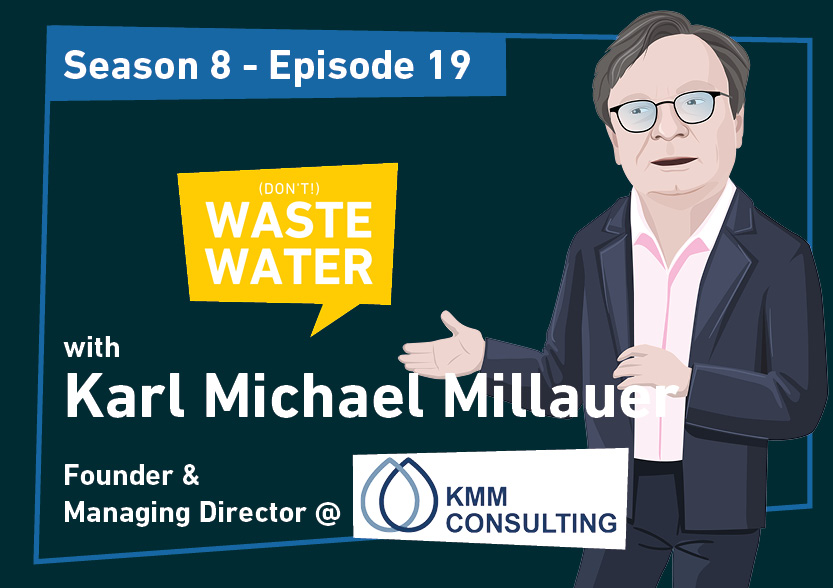

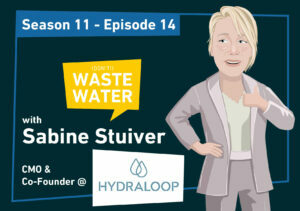
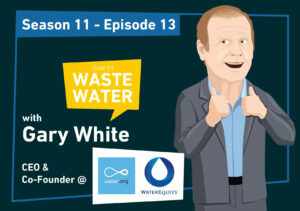
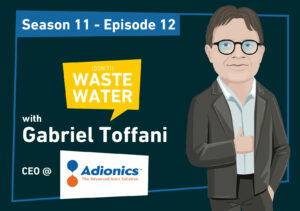
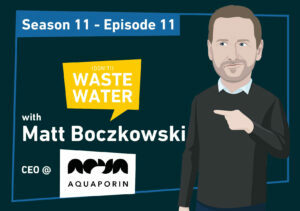
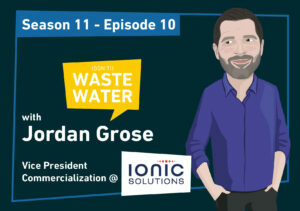

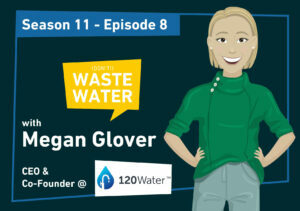
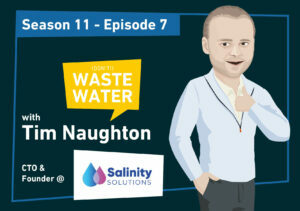

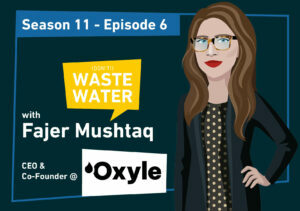
1 thought on “The Fascinating Story of the Man Who Has 35 Water Companies to Sell”